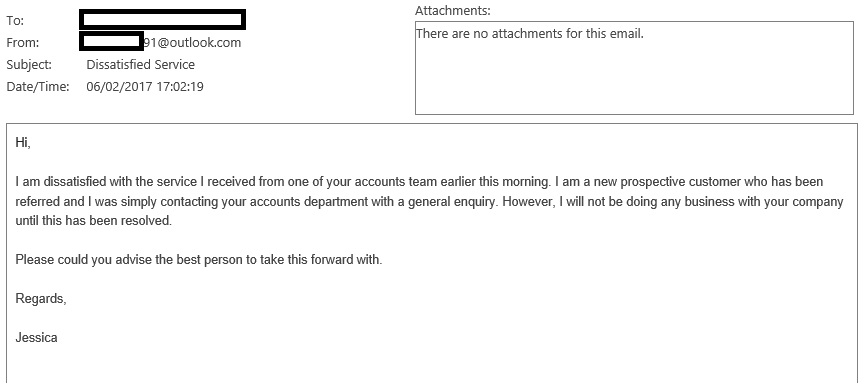Attention to detail……one person’s pedantry is another person’s saviour
My elder son had an English test at school yesterday. The comprehension section included a passage of text about a poisonous snake. Before answering the questions, he crossed through the word “poisonous” and above it wrote “venomous”.
Yesterday was clearly the day for such scrutiny as I also had a client contact me with suspicions regarding an email (below).

One can look at the cumulative effect of the various clues as none truly screams “fake” when viewed in isolation;
– there is no personalisation in the salutation which may indicate spam (easier to send hundreds of similar emails out)
– the recipient is a business-to-business company; a genuine prospective client is more likely to mail from a business address
– a genuine correspondent may have offered a phone number to discuss the ‘dissatisfaction’
– what else might motivate such a request?
The first three contribute to the overall levels of doubt. The final point may seem innocent enough but take a quick look at our previous article here for a reminder of how this information can be used against you.
Putting it all together we agreed that this email did not warrant a response in the absence of any evidence from colleagues regarding the alleged contact.
Please keep in mind that some fake emails are easy to spot (see below for an email received today which is clearly NOT from Barclays Bank) whilst others may be well composed, contain genuine logos or links, and make requests which seem honest enough.
Scrutinise the content of any email and, if in doubt, contact us for further assistance on 0118 976 7111
Contact us with any oddities you have experienced and it could just be in the next “May contain nuts” article – email webresponse@vcisystems.com
